Naguib Sawiris is an Egyptian billionaire with a net worth of US$5 billion (Bloomberg). Together with Nassef Sawiris, the two brothers are well known as the reputable sons of Onsi Sawiris from the wealthiest Egyptian descents. While his younger brother is the richest man in Egypt, Naguib is ranked second behind Nassef.
However, when come to investing, there’s one place on planet Earth that the Egypt’s second richest man will not go with a 10-foot pole. That toxic plan is none other than Saudi. Billionaire Naguib reveals that he will not invest in the Kingdom of Saudi Arabia for a simple reason – he does not believe there’s a rule of law in the country.
Revealing his opinion at the MENA Summit 2019 in Abu Dhabi, Naguib Sawiris said – “Personally, I can invest anywhere in the world, why would I go somewhere where I am not convinced there is a rule of law and order. And that there is real democracy and that people are free. I think it goes together – political stability and economic stability, they go together.”
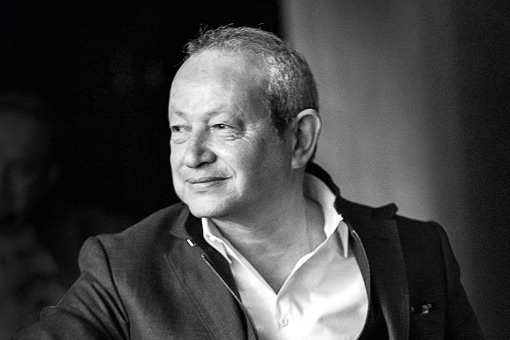
He was, of course, referring to the brutality of Saudi Crown Prince Mohammed bin Salman, whose reputation has taken a beating after the gruesome murder of journalist Jamal Khashoggi in the Saudi consulate in Istanbul in October last year. The Saudi journalist, who also wrote for the Washington Post, was a prominent critic of Crown Prince Mohammed bin Salman.
Turkish government was the first who exposed Khashoggi was killed by Saudi agents, but Saudi denies those allegations. After more than two weeks of denying that he was kidnapped, let alone murdered, Saudi authorities finally admitted he was killed inside the consulate. Until today, Khashoggi’s body has not been found, and probably can never be discovered.
Khashoggi’s disappearance, widely reported as having been butchered and his body cut into pieces and dissolved with acid, have hurt the reputation of Crown Prince Mohammed as it is widely believed that without a direct order from the favourite son of King Salman, nobody would go as far as slaughtering the Saudi journalist.
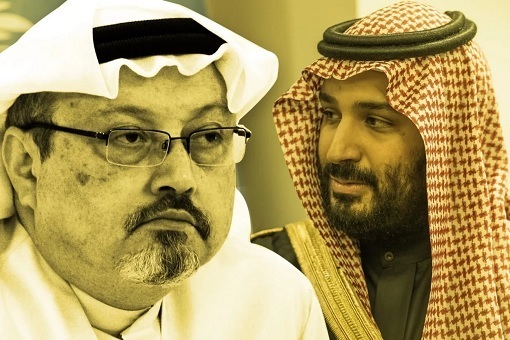
Khashoggi’s death has forced the U.S. Treasury to impose economic sanctions on 17 Saudi officials, including the crown prince’s former top aide Saud al-Qahtani, who was fired as a result of the investigations. However, Qahtani is among the Saudi crown prince’s closest aides and he could not have acted without orders from him.
Already, international business community has started applying pressure on Saudi Arabia to explain what happened to Khashoggi. British tycoon Richard Branson said he’s pulling back from two tourism projects in Saudi Arabia and has suspended discussions with Riyadh about a $1 billion investment in Virgin’s space companies.
Another reason why the Egyptian billionaire has ruled out making any investments in Saudi is the mass arrest of business executives in November 2017, an operation which Crown Prince Mohammed ordered, but has claimed to be a crackdown on corruption that saw hundreds of elite princes, ministers and businessmen held at the luxury Ritz-Carlton hotel in the Saudi capital Riyadh.
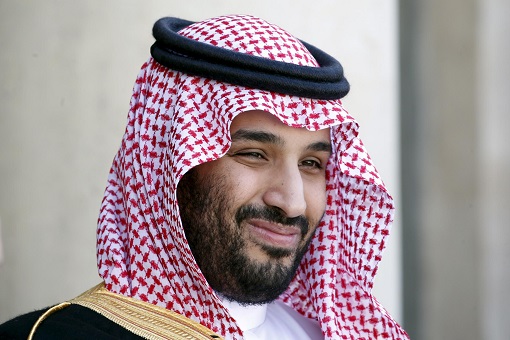
Many were detained for weeks, but eventually most were released after agreeing to mind-boggling financial settlements. As many as 1,700 bank accounts were frozen during the operation. The Wall Street Journal said the Saudi government’s real mission was to confiscate cash and other assets worth as much as US$800 billion (£600 billion; RM3.3 trillion) to replenish the national drying coffers.
The crackdown engineered by the Saudi crown prince has recovered more than US$100 billion. An Anti-Corruption Committee, which is chaired by the crown prince himself, says it has questioned 381 people since the crackdown and reached settlements with 87 of them. However, the authorities have not named the individuals still being detained or said what charges they are facing.
Obviously to the business community, such as Naguib Sawiris, the abrupt asset seizures and the country’s increasingly toxic reputation are some of the major concerns to be considered before pouring investment money. Although Minister of state for foreign affairs Adel al-Jubeir said the murder of Khashoggi was a mistake, very few believe the crown prince had nothing to do with it.
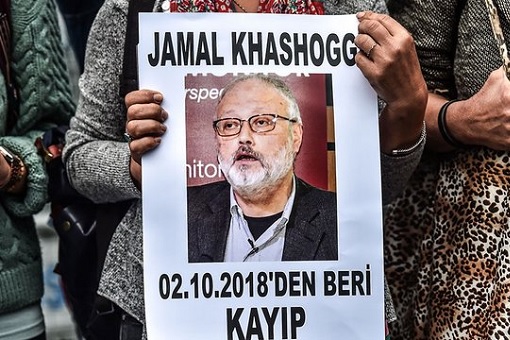
There’s also been growing international concern over the unpredictability and repressive tactics, not to mention impulsive and immature bahaviour, of the kingdom’s powerful young crown prince. What could a billionaire like Naguib Sawiris do if the Saudi King-in-waiting suddenly launches another operation to seize assets belonging to him under the pretext of cracking down on corruption?
The crown prince’s Vision 2030 initiative is in jeopardy as foreign direct investments drop as a result of the breach of human rights. The ambitious US$500 billion megacity – NEOM – which is part of Crown Prince Mohammed’s Vision 2030 to diversify the Saudi’s oil-driven economy has seen several high-profile foreign advisers pulling out of the project.
At 10,230 square miles, the NEOM megacity would be 33 times as large as New York City and one of the largest cities in the world to run on 100% renewable energy. Saudi might have the financial muscle to build the infrastructure, but the kingdom also needs to bring in specialist companies to the development.

Last month, the kingdom announced it will start to work on NEOM Bay in the first quarter this year. The Phase 1, scheduled to be completed by 2020 will have “white beaches, a mild climate and an attractive investment environment.” Crown Prince Mohammed, in an interview with Bloomberg in October, referred to the first phase as the NEOM Riviera – “Neom city will be completed in 2025.”
Critics, however, have questioned the mega-project after previous efforts to build industrial and financial cities have struggled to take off. Construction of the US$10 billion King Abdullah Financial District in north Riyadh began in 2006 but the 73-building hub remains unfinished until today. Now, with the kingdom’s reputation dropping like a rock, NEOM might take a beating as well.
Other Articles That May Interest You …
- Saudi House Of Saud On Fire – Senior Prince Ahmed Returns Home To Challenge Crown Prince Mohammed
- Crown Prince The Barbarian – How Did The Assassination Of Khashoggi Go Haywire
- Khashoggi Confirmed “DEAD” – King Salman’s Favourite Son May Be Fired As Crown Prince After His Murder Scandal
- Saudi Crown Prince A Monster? – Journalist Khashoggi Brutally Tortured, Killed & Cut Into Pieces
- Arab VS Arab – Can’t Beat Them, So Saudi Plans To Turn Qatar Into An Island By Digging A 2.8 Billion Riyals Canal
- Replenish Coffers – The $800 Billion Hidden Reason Behind Saudi Corruption Crackdown
- Arab VS Arab – The Hidden Reasons Why Saudi & Its Gang “Unfriend” Qatar
- Sponsor & Supplier – Majority Of ISIS Militants Are Citizens Of Saudi

|
|
February 13th, 2019 by financetwitter
|


|

|

|

|

|

|










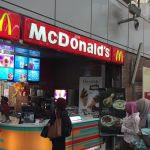
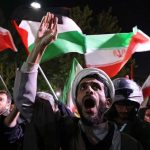
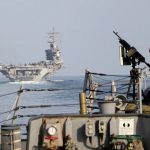
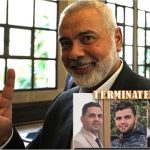
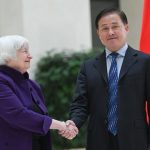













Comments
Add your comment now.
Leave a Reply